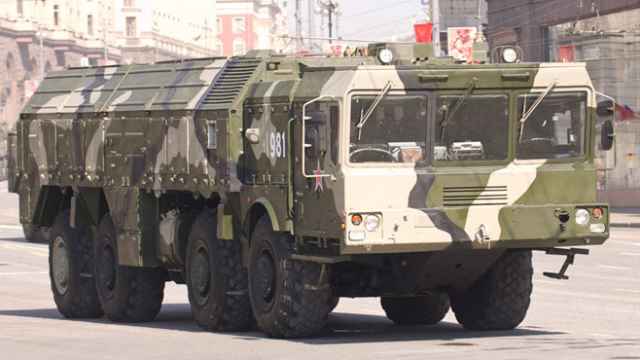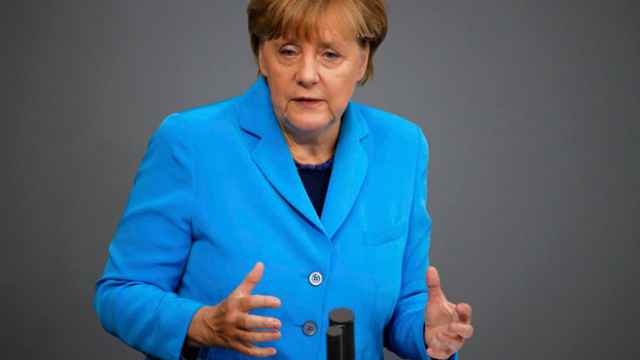German Chancellor Angela Merkel's chief of staff has rejected a suggestion by her economy minister that Germany should support a lifting of sanctions against Russia in order to win Moscow's cooperation to help end the civil war in Syria.
Chief of staff Peter Altmaier acknowledged that Russia, which is subject to U.S. and European Union sanctions because of its annexation of Crimea and backing of Ukrainian separatist rebels, has an important role to play in Syria.
"But this doesn't mean that we will change our stance on the Ukraine crisis. We won't let ourselves be blackmailed," Altmaier told Der Tagesspiegel newspaper in an interview published Sunday.
Russia has been carrying out a military buildup in Syria to support President Bashar Assad, its longstanding ally.
German Economy Minister Sigmar Gabriel, who heads the Social Democrats, Merkel's coalition partner, said on Friday that Western countries should reconsider their position on Russia.
"Everyone should be smart enough to know that you can't stick to sanctions permanently on the one hand and ask for cooperation on the other hand," Gabriel said.
Foreign Minister Frank-Walter Steinmeier, another leading member of the Social Democrats, told ARD television sanctions against Russia could only be rolled back if there was progress in the peace process in eastern Ukraine.
"I hope that cooperation [with Russia] in the matter of Syria can help us to move forward in the Ukraine," he said, adding that both conflicts should be treated separately.
"We don't want to mix things up," Steinmeier said.
The expected influx of more than 800,000 asylum-seekers to Germany this year, including a large number of Syrian refugees, has fueled debate among German politicians on how to end the four-year-old civil war.
The EU and Germany have so far insisted that sanctions against Russia can only be lifted after an agreed peace plan for Ukraine, which Merkel helped to broker, has been fully implemented.
A German government spokesman said last week that plans by pro-Russian separatists to hold local elections in eastern Ukraine were a serious violation of the peace deal and it was regrettable that Moscow has not distanced itself from the idea.
A Message from The Moscow Times:
Dear readers,
We are facing unprecedented challenges. Russia's Prosecutor General's Office has designated The Moscow Times as an "undesirable" organization, criminalizing our work and putting our staff at risk of prosecution. This follows our earlier unjust labeling as a "foreign agent."
These actions are direct attempts to silence independent journalism in Russia. The authorities claim our work "discredits the decisions of the Russian leadership." We see things differently: we strive to provide accurate, unbiased reporting on Russia.
We, the journalists of The Moscow Times, refuse to be silenced. But to continue our work, we need your help.
Your support, no matter how small, makes a world of difference. If you can, please support us monthly starting from just $2. It's quick to set up, and every contribution makes a significant impact.
By supporting The Moscow Times, you're defending open, independent journalism in the face of repression. Thank you for standing with us.
Remind me later.





